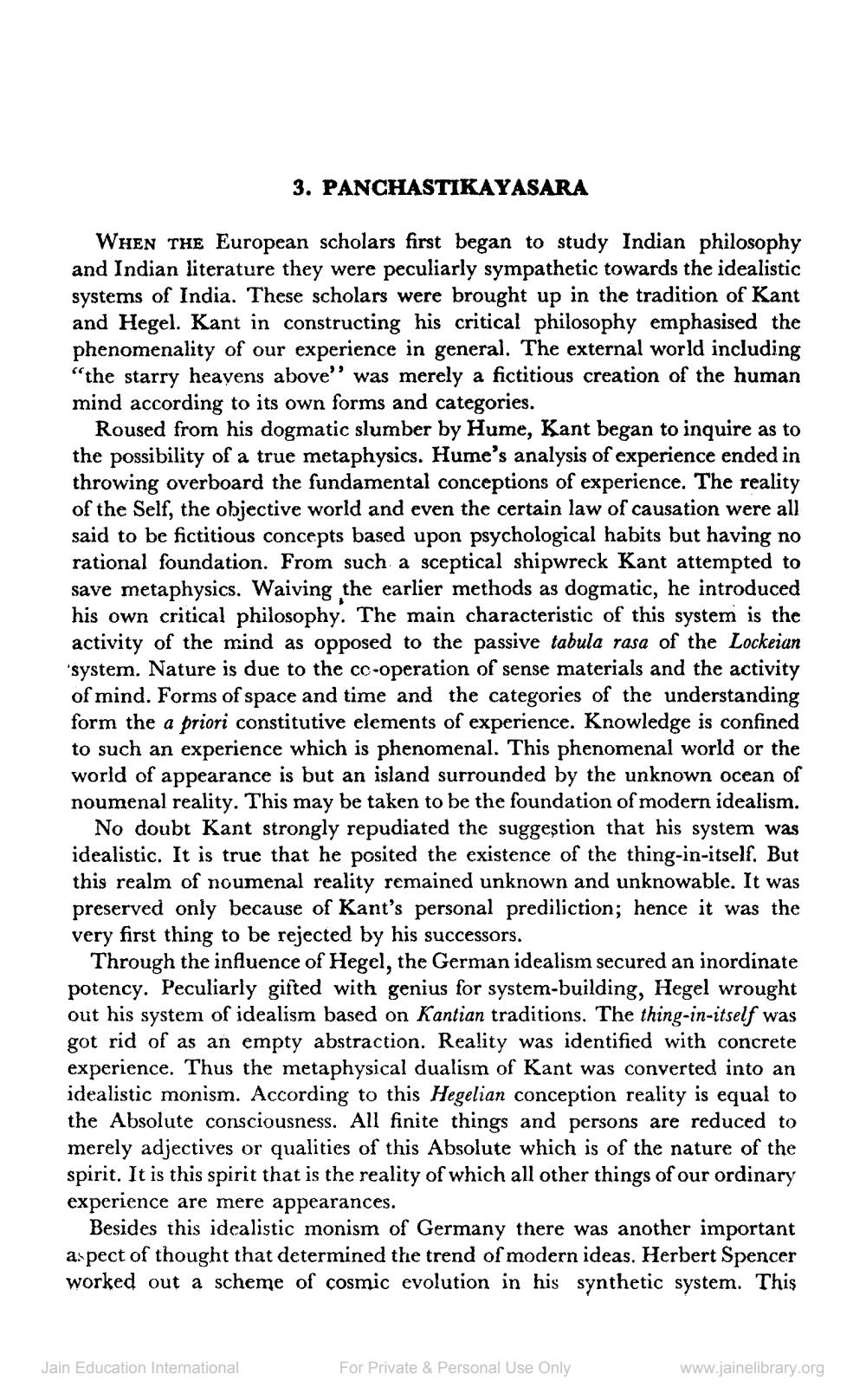________________
3. PANCHASTIKAYASARA
WHEN THE European scholars first began to study Indian philosophy and Indian literature they were peculiarly sympathetic towards the idealistic systems of India. These scholars were brought up in the tradition of Kant and Hegel. Kant in constructing his critical philosophy emphasised the phenomenality of our experience in general. The external world including "the starry heavens above" was merely a fictitious creation of the human mind according to its own forms and categories.
Roused from his dogmatic slumber by Hume, Kant began to inquire as to the possibility of a true metaphysics. Hume's analysis of experience ended in throwing overboard the fundamental conceptions of experience. The reality of the Self, the objective world and even the certain law of causation were all said to be fictitious concepts based upon psychological habits but having no rational foundation. From such a sceptical shipwreck Kant attempted to save metaphysics. Waiving the earlier methods as dogmatic, he introduced his own critical philosophy. The main characteristic of this system is the activity of the mind as opposed to the passive tabula rasa of the Lockeian 'system. Nature is due to the co-operation of sense materials and the activity of mind. Forms of space and time and the categories of the understanding form the a priori constitutive elements of experience. Knowledge is confined to such an experience which is phenomenal. This phenomenal world or the world of appearance is but an island surrounded by the unknown ocean of noumenal reality. This may be taken to be the foundation of modern idealism.
No doubt Kant strongly repudiated the suggestion that his system was idealistic. It is true that he posited the existence of the thing-in-itself. But this realm of noumenal reality remained unknown and unknowable. It was preserved only because of Kant's personal prediliction; hence it was the very first thing to be rejected by his successors.
Through the influence of Hegel, the German idealism secured an inordinate potency. Peculiarly gifted with genius for system-building, Hegel wrought out his system of idealism based on Kantian traditions. The thing-in-itself was got rid of as an empty abstraction. Reality was identified with concrete experience. Thus the metaphysical dualism of Kant was converted into an idealistic monism. According to this Hegelian conception reality is equal to the Absolute consciousness. All finite things and persons are reduced to merely adjectives or qualities of this Absolute which is of the nature of the spirit. It is this spirit that is the reality of which all other things of our ordinary experience are mere appearances.
Besides this idealistic monism of Germany there was another important aspect of thought that determined the trend of modern ideas. Herbert Spencer worked out a scheme of cosmic evolution in his synthetic system. This
Jain Education International
For Private & Personal Use Only
www.jainelibrary.org




